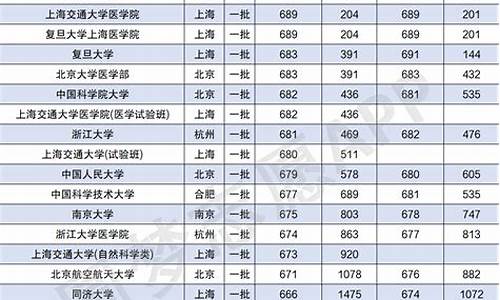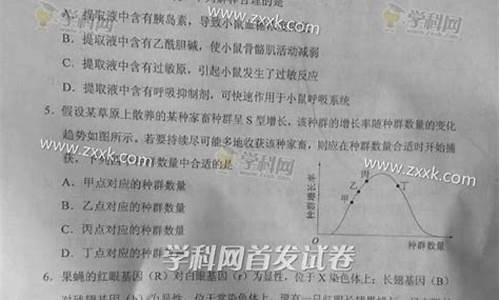您现在的位置是: 首页 > 教育研究 教育研究
英语高考北京写作,2021北京英语高考作文范文
tamoadmin 2024-07-12 人已围观
简介1.如何写一篇英语作文介绍北京烤鸭?2.北京高考英语又见“李华”,量子计算等成为考题,北京试卷难度如何?3.北京2023高考英语难度4.北京外国语大学硕士研究生《英语能力测试(写作)》考试试题成考快速报名和免费咨询:s://.87dh/xl/ 北京市成人高考英语考试有哪些题型?成人高考的考试科目中,英语科目是一定要考的,考生想了解一下英语考试有什么题型。那么接下来帮助考生解答一下!1.语音部分,考
1.如何写一篇英语作文介绍北京烤鸭?
2.北京高考英语又见“李华”,量子计算等成为考题,北京试卷难度如何?
3.北京2023高考英语难度
4.北京外国语大学硕士研究生《英语能力测试(写作)》考试试题

成考快速报名和免费咨询:s://.87dh/xl/ 北京市成人高考英语考试有哪些题型?成人高考的考试科目中,英语科目是一定要考的,考生想了解一下英语考试有什么题型。那么接下来帮助考生解答一下!
1.语音部分,考生可掌握各类单词的读音,熟悉英语字母及常用字母组合在单词中的读音,了解英语的基本语调及使用语调的规则,同时多积累常考的词汇、语法,如短语组词、时态等知识,在补全对话部分也可适用。
2.词汇与语法,可通过掌握一定数量的单词、短语以及各种词汇的相关用法,时态类型、高频句子的运用,同样也可以在补全对话方面的答题运用。
3.完形填空,积累词汇,对动词、名词、形容词、副词等多种词汇的意义进行理解,同时了解知识点的运用,结合练习题多做完形填空的训练,掌握一定的填词技巧。
4.阅读理解,通过提高词汇量,多读短文并做阅读训练,提高英语阅读理解的能力,根据词汇大规则进行答题,也可以结合上下文运用所学知识分析相关词汇的词义,结合题干答题。
5.短文写作,考生可以通过多背短文写作的高频句子,积累常考文体的开头写作形式,熟悉句型和单词,答题时句型和单词正确且内容符合题意,文章文不是很好也可以拿到一定的分数。所以,考生在复习时可通过多写、多练、多记,熟悉英语语言结构、词块、句式的运用等考点。
成考有疑问、不知道如何总结成考考点内容、不清楚成考报名当地政策,点击底部咨询,免费领取复习资料:s://.87dh/xl/
如何写一篇英语作文介绍北京烤鸭?
定你是李华,你的美国朋友打算暑期来北京旅游,来信询问改建后前门大街的情况。请你写信回复,简单介绍以下内容:
1、简况:长800米、600多年历史、300余家商铺;
2、位置:天安门广场南面;
3、交通:公共汽车17、69、59等路,地铁2号线;
4、特色:步行街、当当车、茶馆、剧院等。
参考词汇:
步行街:pedestrian street
当当车:trolley car
地铁:subway
注意:
1、词数100左右,开头语已经为你写好;
2、可以适当增加细节,以使行文连贯。
作文范文:
Dear Sarah,
Thank you for your letter asking about the rebuilt Qianmen Street. Here is something about it.
Qianmen Street is a famous street of over 600 years old. Along this 800-metre street, there are more than 300 shops. As the street is in the center of Beijing, just to the south of Tian’anmen Square, it’s very convenient to get there by bus. You may take Buses No.17, 69 or 59.subway Line 2 has a stop there too. Qianmen Street is a pedestrian street, but there are trolley cars to take you not only to the shops, but also to theaters and teahouses where you can experience a truly Chinese way of life, I’m sure you’ll like it.
June 8th
Dear Haiqing,
I hear you are very unhy these days because your parents can’t afford to buy you some brand-name shoes and garments you like very much. And I write you this letter to share with you what I think about this matter.
To begin with, beauty is just skin deep. Don’t you think it silly to pay so much attention to your earance? He is a shallow person who judges others by their earance; in the same sense, he is a shallow person who thinks that a brand-name garment can add to his glamour. So please, just forget about those brand-name things. What really matters is not whether you wear brand-name shoes or garments but whether your clothes fit you. As a student, you he to wear the school uniform on the weekdays and to be honest, you look very smart in it. Then why do you he to bother to buy the expensive brand-name things?
Secondly, I know your parents are both erage workers. Hard as they work, they don’t earn much. Despite this, they do their best to give you a lot of things on demand. Look at the callus on their hands and wrinkles on their faces, how can you he the heart to ask for more than they can afford, which will surely break their hearts? Remember, parents don’t owe us expensive summer camps; they don’t owe us Sony Walkman; nor do they owe us Nike shoes, If you really want those fancy things, you should take a part-time job to contribute to their purchase rather than ask your parents for money to add to their already hey burden. Don’t you think so?
Thirdly, we he such a wide variety of things ailable these days which are both nice and inexpensive. What’s the point of paying much more for those brand-name things that are not much better? My friend, take my advice, and you’ll be a wiser consumer as well as a more considerate child to your parents.
Poverty, sometimes, is a good thing. It can test a person’s character and it makes a man out of a boy faster than anything else. Keep working hard, and you are bound to be able to afford those things in the near future. Now you may as well focus on your study. Anyway, wouldn’t it be funny for a would-be achiever to be so preoccupied with brand-name things all day long?
Keep in touch.
Yours
Huangping
设你是李红,你的一位美国笔友Robert写E-mail问及你高考后暑的安排,请根据以下要点,写一封100词左右的email回复他, 可以适当增加细节。
1. 学开车 2. 参加英语培训课程 3. 去北京看奥运会 4. 游览北京的名胜
注意:1.根据以上内容写一篇短文,不要逐句翻译,可适当增加细节以使行文连贯。
2.要准确使用语法和词汇;使用一定的句型、词汇,清楚、连贯地表达自己的意思;
3. 词数:100个左右。开头已给出,不计词数。
Dear Robert,
How time flies! _____________________________________________________
______________________________________________________________________________
_______________________________________________________________________________
_____________________________________________________________________________
____________________________________________________________________________
命题方向与写作提示
高考英语书面表达写作素材都是与中学生的日常生活相关的话题,会避免出现考生不熟悉的话题,也不会出现农村或城市学生不熟悉的话题,注重考查考生的语言表达能力。本篇素材考查书信体裁的作文,是应用文的写作,话题涉及社会热点:北京奥运会,内容与中学生的实际生活相关:高考后暑的安排,体裁是书信体的电子邮件。写作要点包括:1)问候;2)引入话题:高考临近,高考后的安排;3)学开车;4)参加英语培训课程;5)去北京看奥运会;6)游览北京的名胜;7)结束语。
写作提示
书面表达一定要注意要点齐全,写作中要注意适当增加细节以使上下文连贯,并使用一定数量的句式结构。
范文 (One possible version)
Dear Robert:
How time flies! The hy days we shared often shines in my memory. What about you? As you know, my college entrance exam is roaching, which also announces the end of this sort of pressing study life. However,I intend to he a meaningful summer vacation. First, I will learn to drive to get a driving license, which is a new activity for a high school graduate in China. I will he a good rest, enjoying my hobbies. Then I will take some English courses to improve my English communication ability, With the 2008 Olympics beginning, I will be a participant of it, watching the basketball match between China and the US. I he been dreaming of Kobe's performance long. After that, I will pay a visit to some tourist attractions to widen my horizon.
That is the plan for my vacation. I am looking forward to being told about your arrangements of vacation. Give me your quick reply soon, OK?
Best wishes!
北京高考英语又见“李华”,量子计算等成为考题,北京试卷难度如何?
写作思路:根据题目要求,以介绍北京烤鸭作为主题,先介绍北京烤鸭的历史,接着介绍北京烤鸭的吃法。
My forite food is Beijing roast duck.
我最喜欢的食物是北京烤鸭。
Beijing roast duck is a famous food of Quanjude roast duck restaurant in Beijing.
北京烤鸭,是北京全聚德烤鸭店的名食。
It has the characteristics of ruddy color, fresh and tender taste, mellow taste, fat but not greasy. It is known as the first delicious food in Beijing and enjoys a good reputation at home and abroad.
它以色泽红润,入口鲜嫩,口味醇厚,肥而不腻的特色,被誉为北京第一美味,名声享誉海内外。
Beijing roast duck is made of local rare Beijing duck.
北京烤鸭是用当地的名贵北京鸭制成的。
It is the best meat duck in the world.
它是当今世界上最优质的一种肉鸭。
Roast the duck, cut the meat into pieces and put it on the plate.
烤好的鸭子,将皮肉切成一片一片的装入盘中。
When eating, you can dip in some sweet sauce, wrap in Scallion section, involve in pancakes, and then taste.
食用时可以蘸点甜酱,裹着葱白段,卷入薄饼,即可入口品尝了。
Beijing roast duck with beautiful color, fragrance and taste sounds like a mouth watering duck.
色香味美的北京烤鸭,听起来真让人不由自主地垂涎欲滴。
Don't you want one too?
难道你不想也来一只吗?
北京2023高考英语难度
2022年全国高考英语科目考试落下帷幕。“高考英语”“李华写信了吗”等话题随之登上微博热搜榜。高考英语考试结束后,中国人民大学附属中学考点的多名考生向记者表示,今年北京高考英语卷的题型、试题难度都很常规,整场考试答题过程很顺利。今年北京高考英语卷的大作文仍然是李华写信。
今年北京高考英语卷,难度很常规记者在考点外随机访的多名考生反映,“今年高考英语北京卷的不算难”“英语试卷感觉比做题的数学简单多了”“英语试题都比较常规,题型、难度跟平时考试都差不多,英语作文难度也不大。”
现场还有一男考生告诉记者,今年高考英语北京卷的作文里又出现了高考英语作文中的常客“李华”。今年的作文是,李华要写一封邀请信,邀请Jim为班级开展一场线上的英语写作交流活动。据这名考生介绍,“这几年受疫情影响,学校各种线上活动很多。平时老师布置的作业,包括自己考前做的作文练习时,都写过跟今年高考类似的作文,感觉自己像是押中了题。”
2022年高考英语试题在命制过程中严格依照国家课程标准和高校人才选拔要求,优化试题呈现方式,加强对关键能力和学科素养的考查,引导学生能用、会用、用好课标范围内的语言知识,避免超标、超前学习,避免死记硬背和机械刷题,切实减轻学生学习负担。
英语试题在命制过程中突出北京特色,坚持“四个突出,四个考出来”的命题理念,注重落实立德树人根本任务,切实促进考生英语学科核心素养的发展,进一步优化评价手段,充分发挥高考对教学的积极反拨作用,较好地体现了高考“立德树人、服务选才、引导教学”的核心功能定位。
北京外国语大学硕士研究生《英语能力测试(写作)》考试试题
北京2023高考英语难度总体来说不算难。
北京高考英语真题试卷中对语法的考查注重基础、强调运用,北京高考英语试题重在考查考生的语言运用能力,这能够有效引导教学在关注基础知识的同时,注重语言运用能力的培养。
2023北京高考英语试题把思考空间留给了学生,鼓励学生表达切身体会和真情实感,有效地促进了学生语言运用能力的发展。北京高考英语试题倡导学用结合,以评促学,促进学生综合语言运用能力的发展,体会到英语学习的获得感和成就感。
北京2023高考英语技巧
1、英语听力
听力的难点在于第一节只放一遍听力材料,只有一次机会抓取关键信息;同时,听力第二节会存在陷阱,一定要在听完整段材料以后再选答案,不能只听一半就想当然。
2、英语阅读
阅读的难点主要在于主旨大意题非常考察学生的总结归纳能力,其混淆选项也是考生失分的重灾区;阅读的细节理解题也非常考察学生的信息定位和查找能力,考生需要注意用时和定位的准确性。
3、英语七选五
七选五非常考察考生的快速归纳和信息甄辨能力,回顾检查的难度也较大,而且一道题错的话就至少会有两道题错。
4、英语完形填空
综合能力要求较高,考察词汇量和语法知识较多,需要从语境中推断关键信息。
5、英语语法填空
考察的语法知识较多,需要考生自己从上下文找到相关的线索,同时,短文填空需要自己填写单词/单词变体,考察考生的单词拼写。
6、英语写作
近年新高考改革,作文变成了两道题,题量变大,同时增加了话题的灵活性,增加了续写的新题型,写作难度提升。
《英语能力测试(写作)》是北京外国语大学英语语言文学硕士研究生专业的重要考试科目,英语学院研究生教育包括英语文学、语言学与应用语言学、翻译学、美国研究、英国研究、澳大利亚研究、加拿大研究和爱尔兰研究等方向,重视系统的专业知识传授和严格的研究方法训练。课程设置旨在夯实英语功底,拓展学术视野,培养具有人文素养、独立研究能力和开拓精神的高级外语专门人才。北京外国语大学硕士研究生《英语能力测试(写作)》考试试题如下:
I. Summarize the main points in the following article (in about 200 words) and write a commentary (in about 500 words) on the issue under discussion, relating it to Chinese reality. (70 points)
Gregory Currie, a professor of philosophy at the University of Nottingham, recently argued that we ought not to claim that literature improves us as people, because there is no “compelling evidence that suggests that people are morally or socially better for reading Tolstoy” or other great books.
Actually, there is such evidence. Raymond Mar, a psychologist at York University in Canada, and Keith Oatley, a professor emeritus of cognitive psychology at the University of Toronto, reported in studies published in 2006 and 2009 that individuals who often read fiction ear to be better able to understand other people, empathize with them and view the world from their perspective. This link persisted even after the researchers factored in the possibility that more empathetic individuals might choose to read more novels. A 2010 study by Mar found a similar result in young children: the more stories they had read to them, the keener their “theory of mind,” or mental model of other people’s intentions.
“Deep reading”—as opposed to the often superficial reading we do on the Web—is an endangered practice, one we ought to take steps to preserve as we would a historic building or a significant work of art. Its disearance would imperil the intellectual and emotional development of generations growing up online, as well as the perpetuation of a critical part of our culture: the novels, poems and other kinds of literature that can be reciated only by readers whose brains, quite literally, he been trained to rehend them.
Recent research in cognitive science, psychology and neuroscience has demonstrated that deep reading—slow, immersive, rich in sensory detail and emotional and moral complexity—is a distinctive experience, different in kind from the mere decoding of words. Although deep reading does not, strictly speaking, require a conventional book, the built-in limits of the printed page are uniquely conducive to the deep reading experience. A book’s lack of hyperlinks, for example, frees the reader from making decisions—Should I click on this link or not?—allowing him to remain fully immersed in the narrative.
That immersion is supported by the way the brain handles language rich in detail, allusion and metaphor: by creating a mental representation that draws on the same brain regions that would be active if the scene were unfolding in real life. The emotional situations and moral dilemmas that are the stuff of literature are also vigorous exercise for the brain, propelling us inside the heads of fictional characters and even, studies suggest, increasing our real-life capacity for empathy.
None of this is likely to hen when we’re reading online. Although we call the activity by the same name, the deep reading of books and the information-driven reading we do on the Web are very different, both in the experience they produce and in the capacities they develop. A growing body of evidence suggests that online reading may be less engaging and less satisfying, even for the “digital natives” for whom it is so familiar. For example, Britain’s National Literacy Trust earlier released the results of a study of 34,910 young people aged 8 to 16. Researchers reported that 39% of children and s read daily using electronic devices, but only 28% read printed materials every day. Those who read only onscreen were three times less likely to say they enjoy reading very much and a third less likely to he a forite book. The study also found that young people who read daily only onscreen were nearly two times less likely to be above-erage readers than those who read daily in print or both in print and onscreen.
To understand why we should be concerned about how young people read, and not just whether they’re reading at all, it helps to know something about the way the ability to read evolved. “Human beings were never born to read,” notes Maryanne Wolf, director of the Center for Reading and Language Research at Tufts University and author of Proust and the Squid: The Story and Science of the Reading Brain. Unlike the ability to understand and produce spoken language, which under normal circumstances will unfold according to a program dictated by our genes, the ability to read must be painstakingly acquired by each individual.
The deep reader, protected from distractions and attuned to the nuances of language, enters a state that psychologist Victor Nell, in a study of the psychology of pleasure reading, likens to a hypnotic trance. Nell found that when readers are enjoying the experience the most, the pace of their reading actually slows. The combination of fast, fluent decoding of words and slow, unhurried progress on the page gives deep readers time to enrich their reading with reflection, analysis, and their own memories and opinions. It gives them time to establish an intimate relationship with the author, the two of them engaged in an extended and ardent conversation like people falling in love.
This is not reading as many young people are coming to know it. Their reading is pragmatic and instrumental: the difference between what literary critic Frank Kermode calls “carnal reading” and “spiritual reading.” If we allow our offspring to believe carnal reading is all there is—if we don’t open the door to spiritual reading, through an early insistence on discipline and practice—we will he cheated them of an enjoyable, even ecstatic experience they would not otherwise encounter. And we will he deprived them of an elevating and enlightening experience that will enlarge them as people. Observing young people’s attachment to digital devices, some progressive educators and permissive parents talk about needing to “meet kids where they are,” molding instruction around their onscreen habits. This is mistaken. We need, rather, to show them someplace they’ve never been, a place only deep reading can take them.
II. Write an essay (in about 600 words) on the topic below. Your essay should be clear in structure, logical in reasoning and accurate and ropriate in language. (80 points)
Topic
Literature is a nation’s unique cultural heritage and a passage to understanding the soul of the nation. In your opinion, in what ways are Chinese writers important in cross cultural dialogue between China and the West and what role can they play in this endeour?
考研政策不清晰?同等学力在职申硕有困惑?院校专业不好选?点击底部,有专业老师为你答疑解惑,211/985名校研究生硕士/博士开放网申报名中:s://.87dh/yjs2/









